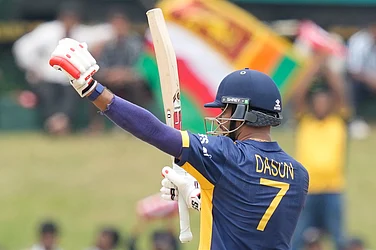On the face of it, Adille Sumariwalla and Charles Dickens may not have much in common. But if the Athletics Federation of India (AFI) president reads the famous Dickens line – “it was the best of times, it was the worst of times” – he would nod in agreement. (More Sports News)
A former Olympic sprinter, Sumariwalla has been heading the AFI since 2012. Under his watch, India won its first ever athletics Olympic gold, in addition to notable performances at the World Athletics Championships and the Commonwealth Games. This is the best phase of his administrative career.
On the minus side, something confusing, and typical of Indian sport, has transpired over the last few days. Sumariwalla said he was appointed as the new president of the IOA (Indian Olympic Association) by its executive council, after Narinder Batra’s resignation in July.
But some IOA officials have rejected his claim. IOA secretary-general Rajeev Mehta called the appointment “untenable”. Acting president Anil Khanna termed it contempt of court, as the Supreme Court had ordered the status quo at IOA to be extended till the next hearing.
In Mumbai, on Monday (August 29), Sumariwalla, with trademark pluck, insisted he was the president.
“I’m the president, that’s all. There’s nothing to discuss,” he told reporters at the announcement of HSBC teaming up with AFI to support Indian women athletes.
He brushed off IOA’s statements to the opposite effect.
“You can say what you want, bolne se kya hota hai.” When told there was a court order that status quo be maintained at the IOA, Sumariwala said, “Show me the court order. There is no court order.”
The conversation shifted to other matters pertaining to Indian athletics. A few days ago, discus thrower Navjeet Dhillon Kaur failed a doping test. Asked what the AFI was doing about the doping issue, Sumariwalla said the organization believed in educating athletes and increased testing. But they could not stop an athlete from doping if he or she had sold their soul.
“Before I became president, we used to have 120 samples a year we used to test. Today we are testing over 1500 samples,” Sumariwalla said. “If more people get tested, more people will get caught. Our idea is to catch more people. None of them (the offenders) were in camp (when they consumed a banned substance). Whatever has happened, it has happened outside camp.
In camp, we test them every few days. Dhanalakshmi (sprinter, who failed a dope test this May) has admitted that when she went to Tamil Nadu, somebody gave her something. So we try to control it in the camp. AFI can only do two things. educate and test. But if you want to do something wrong, how can I stop you from cheating? It’s a moral issue. I can’t change your moral fabric.”
Some of India’s best women athletes were present at Monday’s event. India’s first World Championship medalist Anju Boddy George (Long jump bronze, 2003), was there. Along with her were current stars Priyanka Goswami (10,000m race walk silver, 2022 Commonwealth Games), Hima Das (two relay golds, Asian Games 2018) and Annu Rani (javelin bronze, 2022 Commonwealth Games).
Women in small-town India lived highly restricted lives, Sumariwalla said. Female champions, who have overcome several barriers, are much needed to serve as inspiration for girls all over the country.
“I have maybe visited some 100 districts in India personally. [In many places] Girls are not allowed to even go out of their houses. So we have to make the change,” he said. “You need champions like an Annu Rani, Hima Das or Dutee Chand. People say, ‘Dutee Chand is driving a BMW (she sold it later), we should also be able to drive a BMW’. We want our athletes to do well. We want them to make money so others see there’s a future in sports, not only cricket.”
National Inter-District Junior Athletic Meets (NIDJAM) were among the instrumental factors in the improvement of Indian athletics, Sumariwalla said. The other was identifying certain disciplines around a decade ago to focus on.
“Jumps (long, high, triple), we identified 10 15 years ago. Javelin was something we identified 10-15 years ago. Discus was something we identified 10-15 years ago. Walk was something we identified 10-15 years ago,” Sumariwalla said. “So it’s not something that happened overnight. It’s hard work, it’s strategy, it’s planning. You have to create the ecosystem.
If you just get the world’s best coach, will someone become a champion? No. You also need a physio, a masseur, a doctor, a biomechanics expert. We are creating that ecosystem within whatever means we have.”


























